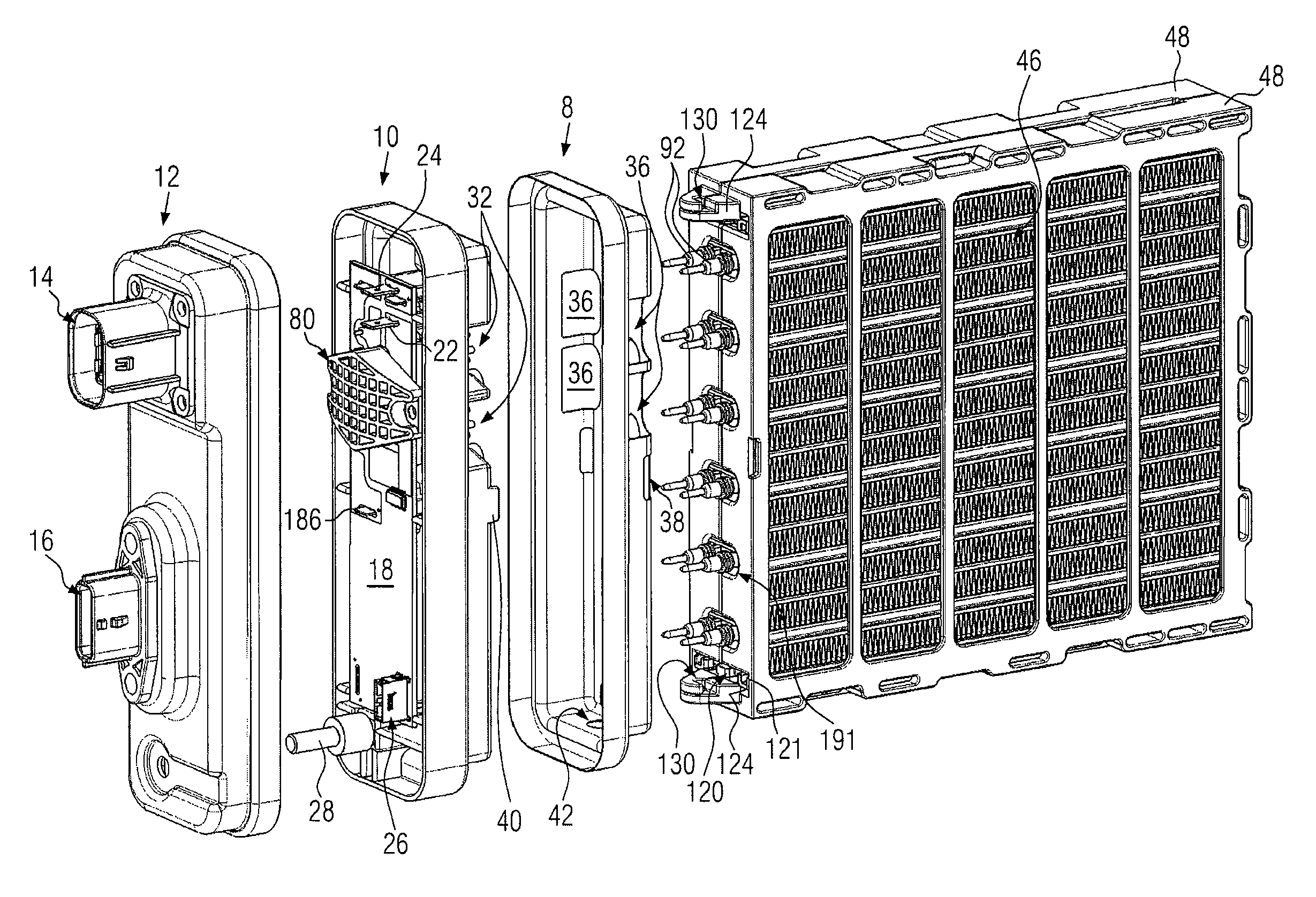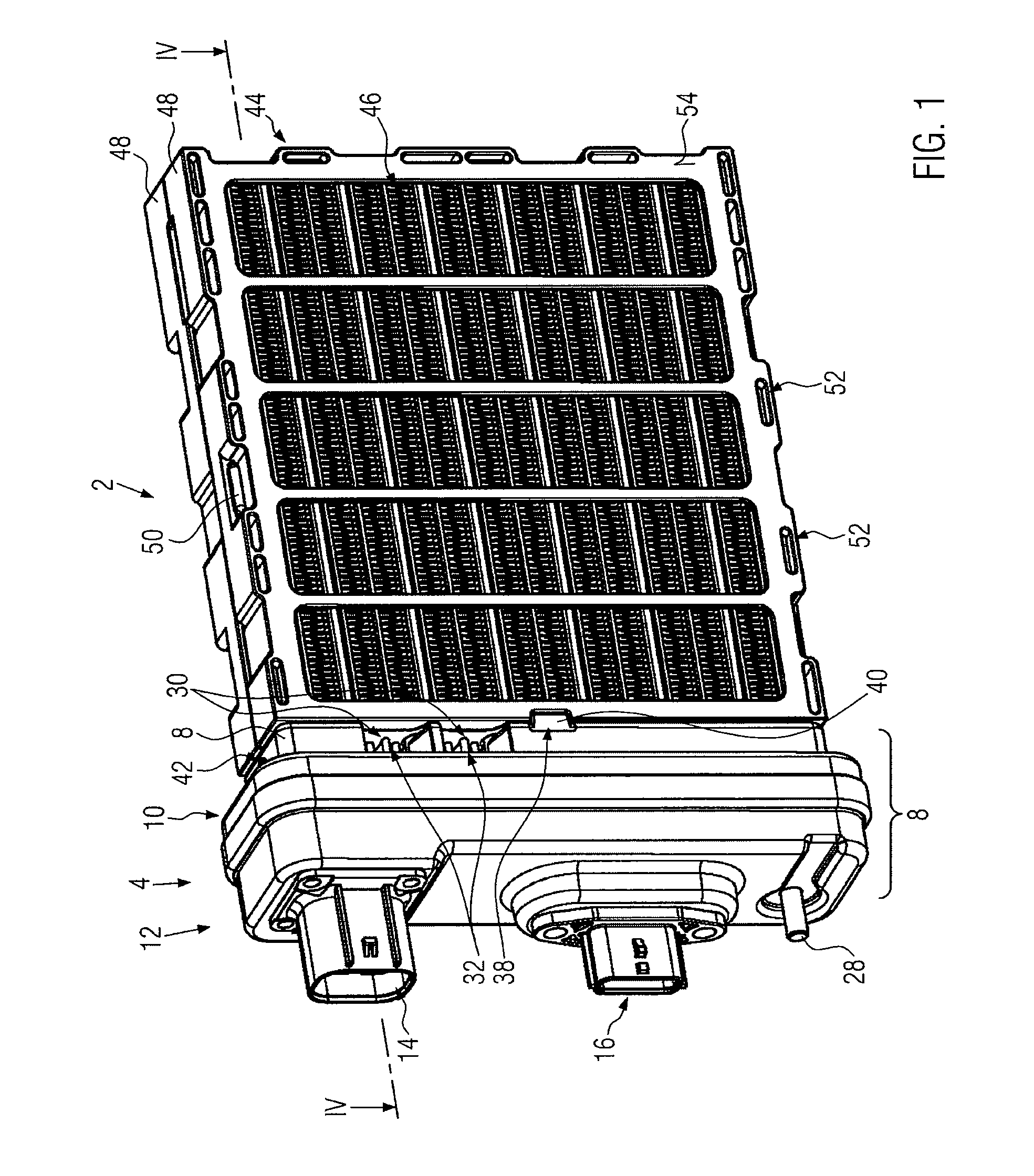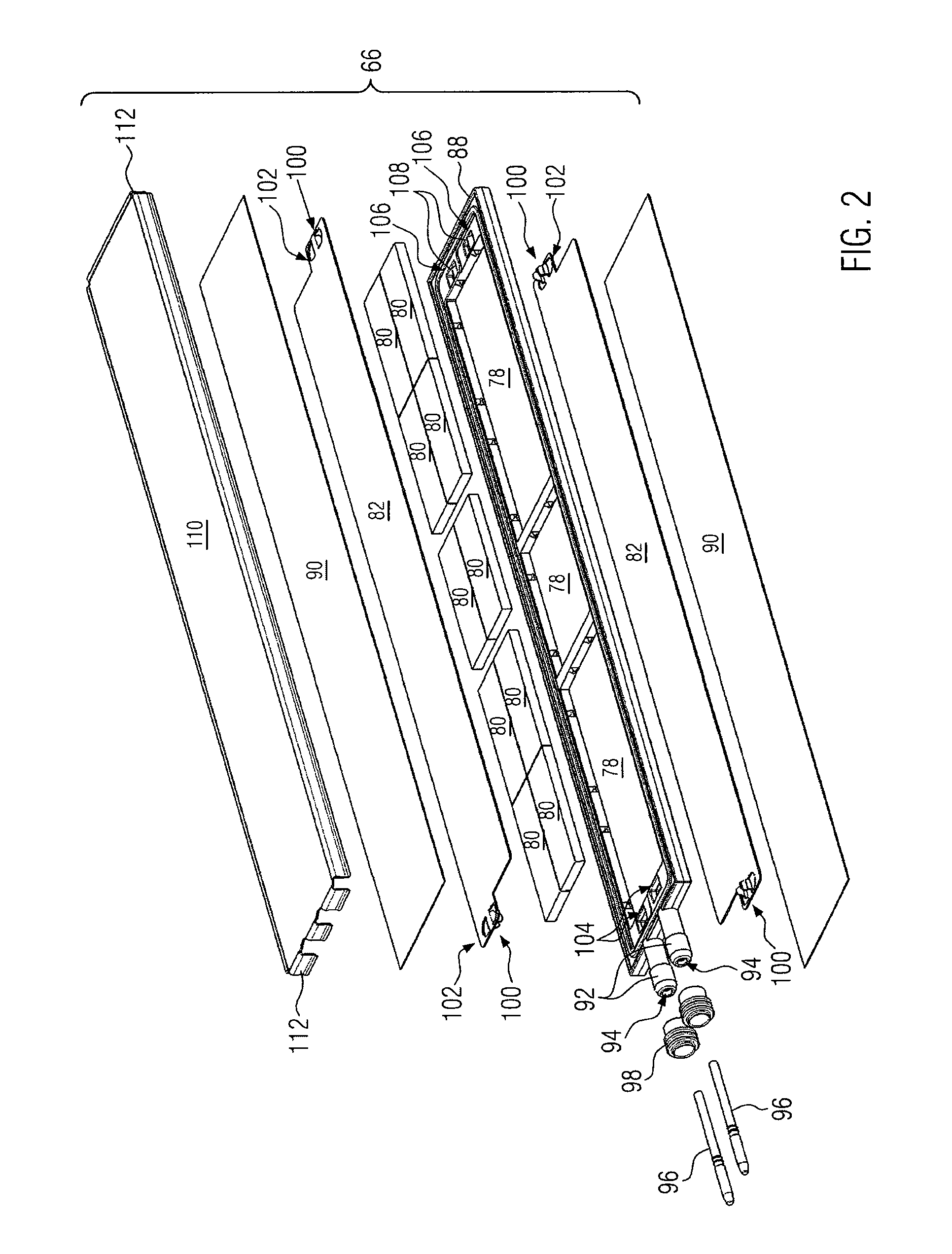Electrical heating device, particularly for a motor vehicle
a technology for electric heating devices and motor vehicles, which is applied in the direction of air heaters, heaters, light and heating apparatus, etc., to achieve the effect of generating power
- Summary
- Abstract
- Description
- Claims
- Application Information
AI Technical Summary
Benefits of technology
Problems solved by technology
Method used
Image
Examples
Embodiment Construction
[0043]FIG. 1 illustrates an embodiment of an electrical heating device with a power section labeled with the reference numeral 2 and a control section labeled with the reference numeral 4. The power section 2 and the control section 4 form a constructional unit of the electrical heating device.
[0044]The control section 4 is formed on the outside by a connecting housing 6, which—as shown particularly in the illustration according to FIG. 4—consists of a screening housing 8, which is formed as, for example, a deep-drawn or cast, respectively deep-drawn metal shell, a plastic housing element 10, which is inserted into the metal shell 8 and a housing cover 12. In the joined state the housing cover 12 can grasp over a free flange of the sheet metal cup 8 and be formed of metal so that the interior of the control section 4 is completely screened by a metallic connecting housing 6. The housing cover 12 can however also be formed from plastic.
[0045]The housing cover 12 bears a female plug h...
PUM
 Login to View More
Login to View More Abstract
Description
Claims
Application Information
 Login to View More
Login to View More - R&D
- Intellectual Property
- Life Sciences
- Materials
- Tech Scout
- Unparalleled Data Quality
- Higher Quality Content
- 60% Fewer Hallucinations
Browse by: Latest US Patents, China's latest patents, Technical Efficacy Thesaurus, Application Domain, Technology Topic, Popular Technical Reports.
© 2025 PatSnap. All rights reserved.Legal|Privacy policy|Modern Slavery Act Transparency Statement|Sitemap|About US| Contact US: help@patsnap.com



